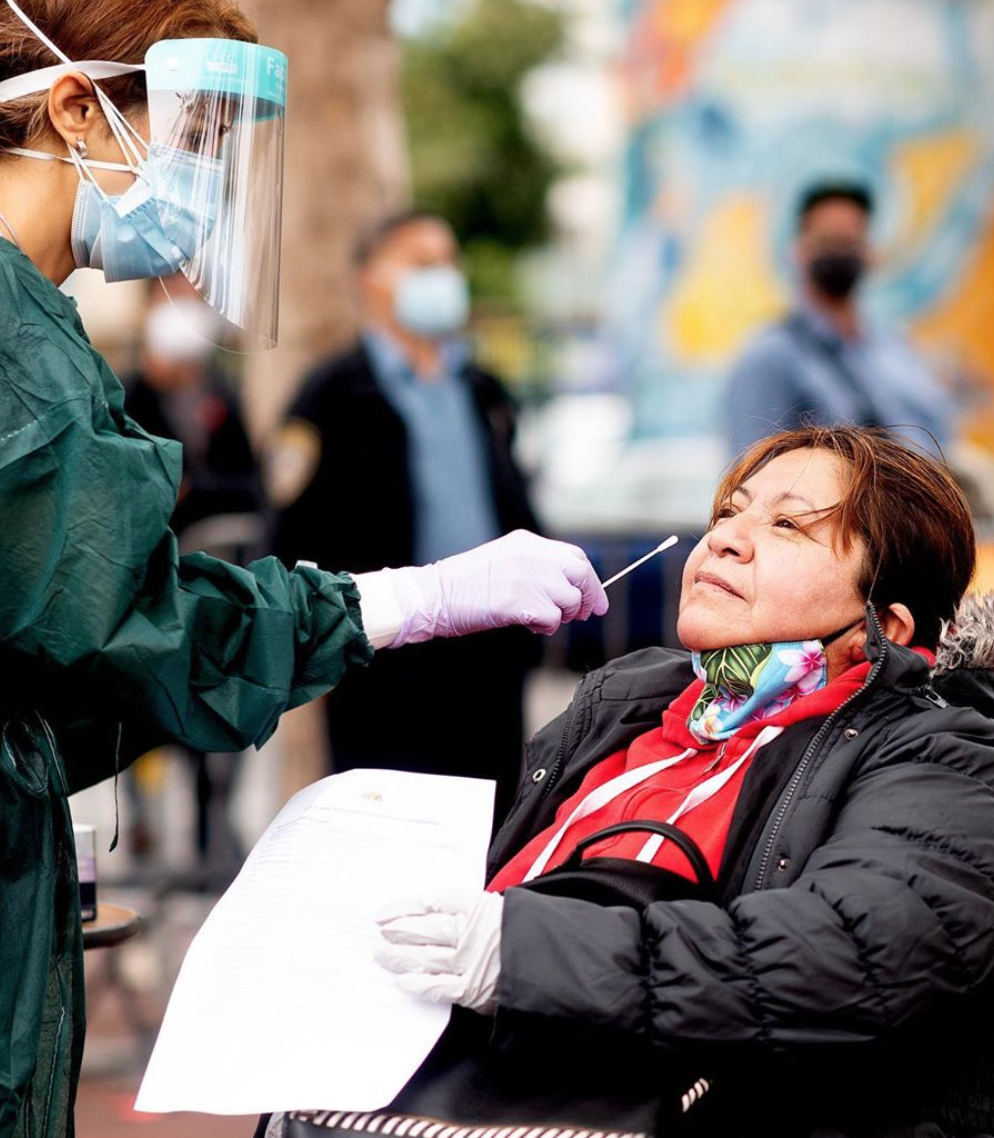SAN FRANCISCO — On Wednesday, September 2, 2020, the University of California, San Francisco (UCSF), released the latest study conducted at the beginning of August, showing COVID-19 impacts low-income Latinx essential workers harshly.
The official statement reviews:
“San Francisco’s overall test positivity rate is currently 2.61 percent, according to the Department of Public Health. The vast majority of those who tested positive at the transit hub site are Latinx (93 percent), speak Spanish as their preferred language (85 percent), earn incomes of less than 50,000 a year (87 percent), and live in high – density households (79 percent). People from across the Bay Area were tested at the plaza, but most positive results were seen in residents of the Mission or southeast San Francisco.”
Diane Havlir, MD, chief of the UCSF Division of HIV, Infectious Diseases and Global Medicine at Zuckerberg San Francisco General Hospital and Trauma Center (ZSFG) and co-founder of Unidos enSalud, explains, “Seven months into this pandemic, low-income Latinx essential workers living in close-knit family units continue to be uniquely vulnerable.”
Project leaders consider the test results are not accurate. They explain that symptomatic (92%) people tend to take the COVID-19 test and receive positive test results. Asymptomatic people are less interested in taking tests.
The new study collected data at the beginning of August as three-week testing. The test was organized at the central 24th Mission BART plaza in San Francisco, and it was a pilot program to offer low-barrier COVID-19 testing. The low-barrier model was free, simple, and convenient tests, which was led by Unidos En Salud, a collaboration between UCSF and the Latino Task Force on COVID-19.
“This important research reinforces our collective work to make testing more accessible to priority populations and helps inform efforts to assist these communities,” said Grant Colfax, MD, San Francisco Director of Health.
Carina Marquez, MD, assistant professor in the UCSF Division of HIV, Infectious Diseases, and Global Medicine and co-director of the testing initiative analyzes, “Public health advice is to go into isolation for 10 days following the first symptoms, but if it takes almost a week from the time of infection to go into isolation, most of the harm has already been done.”
It is hard for low-income essential workers to reach out to resources in San Francisco. The statement states the city may be able to provide financial funds after mid-September to assist people in requiring sick leaves.
Jon Jacobo, chair of the health committee for the Latino Task Force, commented, “ We hear from people all the time who don’t have the privilege to take time off to get tested when they first notice symptoms or are not able to take time off work or make rent in order to go into isolation…We need direct and meaningful action, and we need it now.”






